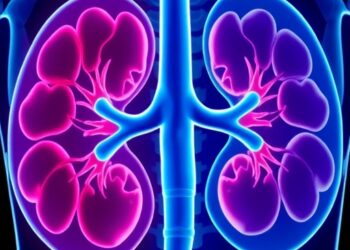Within each of us lies an army of cells whose topmost duty is protecting against external pathogens and internal threats such as proliferating cancer cells. Yet, immune cells can sometimes erroneously attack the body, causing autoimmune diseases like type 1 diabetes.
Within each of us lies an army of cells whose topmost duty is protecting against external pathogens and internal threats such as proliferating cancer cells. Yet, immune cells can sometimes erroneously attack the body, causing autoimmune diseases like type 1 diabetes.
Texas A&M researchers recently received an RO1 grant from the National Institutes of Health to develop a strategy to deliver immune-suppressing proteins generally produced by specialized stem cells. Such an approach could potentially help reduce the immune system’s attack on the insulin-producing beta-cells in the pancreas and open doors to a novel treatment for type 1 diabetes.
“We are excited that the NIH will be supporting us in our research in this area, which has implications for not just type 1 diabetes but also other autoimmune diseases,” said Dr. Roland Kaunas, associate professor in the biomedical engineering department and a grant award recipient.
According to the National Diabetes Statistics Report, 35 per 10,000 youths in the United States have diabetes, of which 304,000 have type 1 diabetes. Currently, the only approved treatment for the condition is lifelong insulin therapy. However, there is ongoing research investigating new therapeutics and approaches to treating this and other autoimmune diseases. For example, cell-based therapies, wherein immune cells or stem cells are genetically altered to produce immune-suppressing products, are an area of active investigation. However, these interventions have challenges, such as toxicity and difficulty transplanting gene-edited cells.
“Mesenchymal stem cells are valuable as a therapy because they can dampen the immune response, but as of now, they are not FDA approved,” said Kaunas. “This is a strong motivation for developing cell-free versions of stem cell therapies that could represent a lower hurdle to getting approval by the FDA.”
TAMU researchers thus focused on techniques to deliver therapeutic products produced by stem cells rather than the cells themselves. So, for example, mesenchymal stem cells (MSCs), like any other cell in the body, produce tiny, nanosized cargo-carrying packets, called extracellular vesicles, that contain RNA, DNA, and other proteins. Some of the proteins within the extracellular vesicles include cytokines and chemokines that can dial down immune activity. Dr. Ryang Hwa Lee, the principal investigator on this grant and associate professor at the Texas A&M School of Medicine, has previously demonstrated the therapeutic potential of MSCs and extracellular vesicles produced by MSCs in preclinical models.
Now, Lee and Kaunas are investigating if extracellular vesicles can be engineered to deliver additional immune-suppressing proteins to more effectively prevent the immune system’s destruction of insulin-producing beta-cells. Then, they plan to demonstrate whether the engineered extracellular vesicles can prevent or even reverse the onset of type 1 diabetes. Last, the team will examine the synergistic effect of the engineered EVs and existing immune therapies in suppressing the immune system.
“We hope that our research will lead to an additional therapeutic avenue that can improve the efficacy and safety of existing immune therapy for type 1 diabetes,” said Lee. “Although ours is preclinical work, its success will facilitate the development of robust and ready-to-use extracellular vesicle-based therapeutics for type 1 diabetes and other autoimmune diseases.”
###




